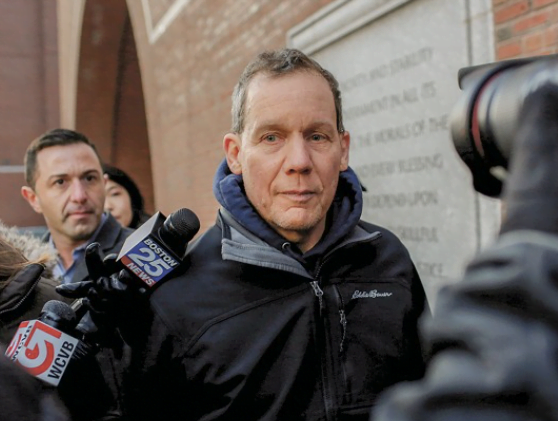A Harvard University chemistry professor will stand trial this week on charges that he concealed funding received from China and lied about his involvement in a recruitment program.
Professor Charles Lieber, an expert in chemistry and nanotechnology, faces four felony charges for tax-related offenses including making false statements to government officials and concealing his connections to Beijing. He was arrested in January 2020 as part of former President Donald Trump’s “China Initiative” – an effort that aimed to crack down on China’s spying and theft of intellectual property. Lieber’s trial represents the highest-profile case among the 148 people that have been charged as part of the initiative.
According to prosecutors, Lieber began working as a “strategic scientist” for the Wuhan University of Technology (WUT) in 2012 and participated in a recruitment program that offered foreign researchers funding in exchange for information. He is said to have received $1.5 million to start a Chinese lab, a monthly salary of $50,000, and an annual stipend of $150,000. He was appointed as director of the WUT-Harvard Joint Nano Key Laboratory, a facility Harvard officials said they didn’t know existed.
Since 2008, Lieber’s lab at Harvard has received more than $15 million in grants from the Department of Defense (DoD) and the National Institutes of Health (NIH). As a recipient of federal grant money, he was required by law to disclose all foreign collaborations. Lieber failed to disclose his associations with China and did not include income from said associations his on federal tax filings.
When questioned, Lieber told authorities he ‘wasn’t sure’ if he was involved in the recruitment program at WUT and ‘didn’t know’ if he had a bank account in China. He also said that he didn’t remember what he had done with the money he brought back to the US from China, adding that he ‘probably gave it to his wife.’
Two days after he met with officials from the DoD, Lieber sent an email to a coworker stating: “I will be careful about what I discuss with Harvard University, and none of this will be shared with government investigators at this time.”
In 2018, shortly after NIH officials started asking questions, Lieber sent an email to WUT asking if the university was still using his name on its web pages. In a separate email, he told an associate the NIH wanted to end his funding and had asked him to repay some of the money he had received.
“I guess for better or for worse I helped them raise the level of their university really significantly in China…What looks bad for me is that I’ve taken a lot of money,” said Lieber to an FBI agent. “I want to be recognized for what I’ve done,” he continued, adding that he hopes to train more people in nanowire science. “The more people who use it in different technologies, the better it is for me.”
Lieber tried to sue Harvard in 2020 to cover legal expenses, but the attempt was unsuccessful. He pleaded not guilty to all charges leveled against him.
“I don’t think I did anything wrong, except I shouldn’t have had an agreement and accepted money,” said Lieber. “It was wrong…It looks like I was very dishonest with investigators from the Department of Defense. I wasn’t completely transparent by any stretch of the imagination.”
Lieber will likely be hit with fines and a prison sentence, though his rapidly-progressing cancer of the lymphatic system could see him hospitalized soon.
Author’s Note: This case is significant because it proves that China is recruiting scientists in the United States. It’s not government information Beijing wants, it’s technology.
Sources:
Harvard Professor Charged With Lying About China Ties Faces Trial
Harvard Professor Goes on Trial on Charges of Lying About China Ties
Harvard chemist Charles Lieber heads to trial over China interactions: Daily updates
